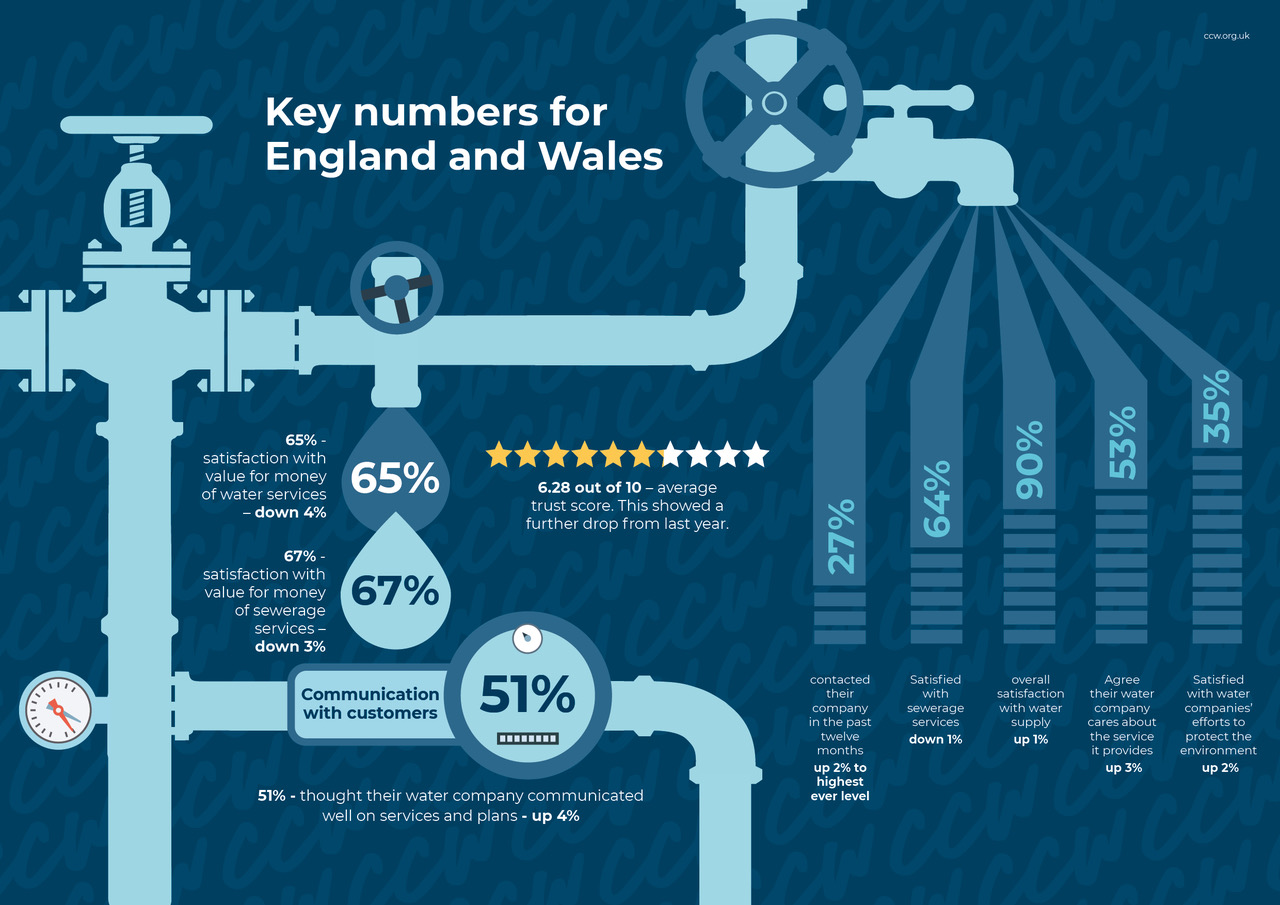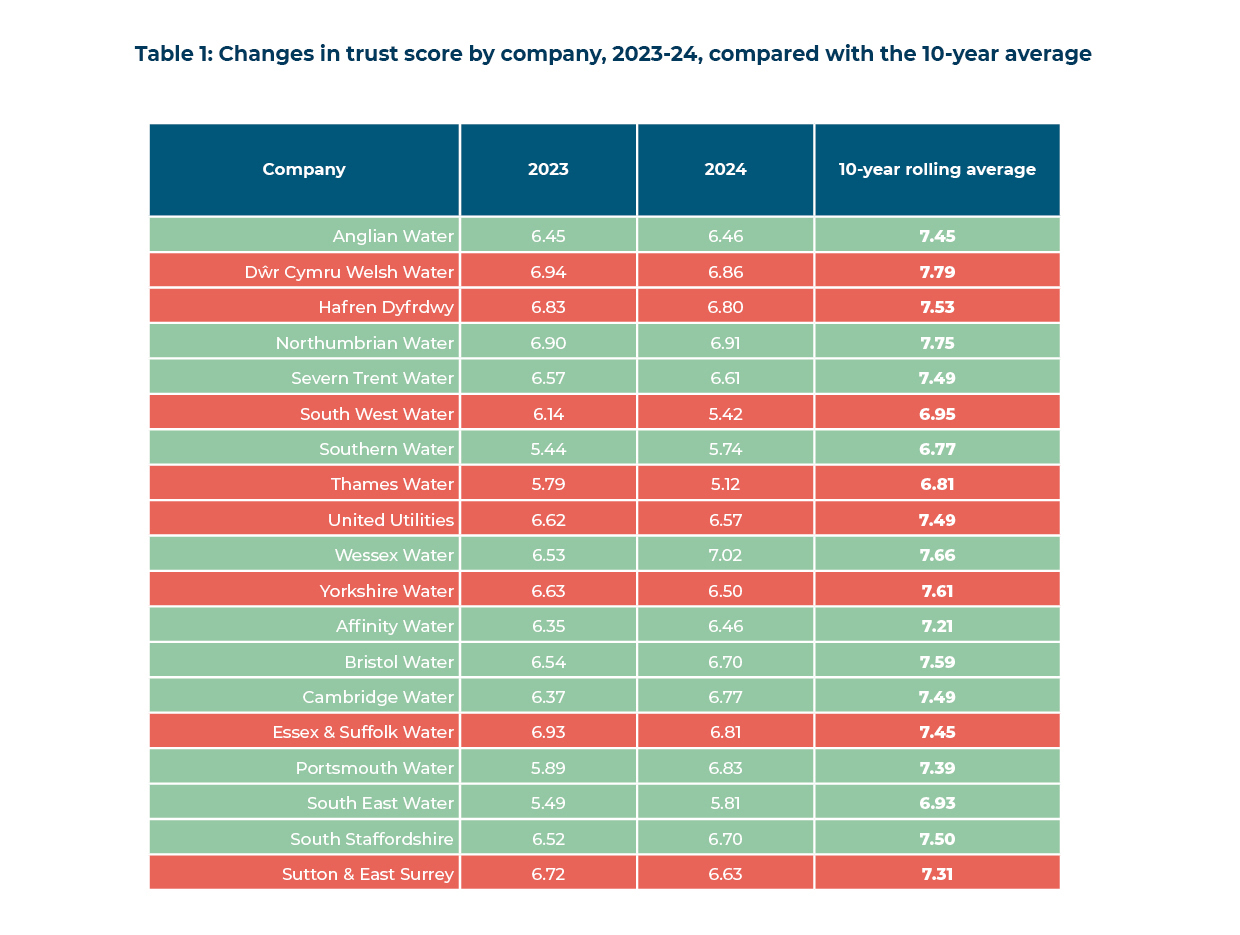Trust in water firms falls to new low as customers question fairness of bills
Fewer households also believe the amount water companies charge is fair, according to the annual Consumer Council for Water survey.

Households’ trust in water companies has fallen to a new low amid a sewage crisis and rising bills, an annual survey has found.
Fewer households – 53%, down 2% on last year to another all-time low – also believe the amount water companies charge is fair, according to the Consumer Council for Water’s (CCW) annual Water Matters study.
The poll, which was taken before households were told they would face an unprecedented rise in water bills from April, found less than two thirds of households (65%) are satisfied that they receive value for money for their water service, down 4% on a year ago.

After sliding to its lowest-ever level last year, the overall trust score for water companies fell again to 6.28 out of 10, despite the majority of companies improving their score.
However these improvements were overshadowed by the poor performance of a few companies including Thames Water (5.12 out of 10) and South West Water (5.42 out of 10) – the two least trusted suppliers.
Wessex Water (7.02 out of 10) and Northumbrian Water (6.91 out of 10) topped the consumer trust ratings and both companies improved their scores.

Regulator Ofwat has allowed companies to raise average bills by £31 a year, or £157 in total, over the next five years to £597 by 2030 to help finance a £104 billion upgrade for the sector.
That represents a 36% increase before inflation, which will be added on top.
However, despite the average £31 a year increase, households have been hit particularly hard since April with an average hike of £86 or 20% front-loaded into the coming year, with smaller percentage increases in each of the next four years.
In return, the sector has pledged to deliver a record five-year package of investment to improve services and clean up rivers, streams and seas.
The CCW said customers must now see companies delivering on their promises.
Its chief executive Mike Keil said: “Water companies have been entrusted with an unprecedented amount of customers’ money, so people need to see and experience a marked difference and are not going to tolerate more broken promises.
“Restoring people’s trust in the sector and belief they are getting a fair deal depends on companies not only consistently delivering on their commitments but also communicating really clearly to customers how their money is flowing directly to improve the things they care about, like the health of our rivers.”
Last year’s report contained the worst set of results ever seen in the survey as customer satisfaction with water companies fell across every measured area, driven largely by households’ concerns over the sector’s environmental performance.
The latest results suggest some of these perceptions have either stabilised or improved, but there is also considerable regional variation in the performance of companies.
The CCW did find that companies appeared to be making progress in raising awareness of the support they can offer households in need of financial help.
Awareness of different types of company support rose to its highest level, including schemes designed to help those who struggle to afford their bill – known as social tariffs – which climbed to 49%, up 4% on last year.
The CCW has called for the introduction of a single social tariff for England and Wales to provide fairer and more consistent support.
A spokeswoman for Water UK, which represents water firms, said: “According to this report, 90% of customers are satisfied with their water services while 65% believe the service they receive is good value.
“Companies are investing a record £104 billion over the next five years to secure our water supplies, end sewage entering our rivers and seas and support economic growth. At the same time, financial support for customers is more than doubling with more than three million households set to receive reduced bills and other forms of financial support by the end of the decade.”
DJS Research surveyed 4,254 UK adults between July 8 and December 18 last year.





